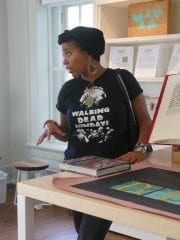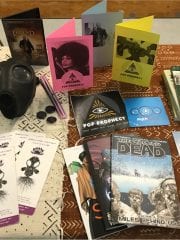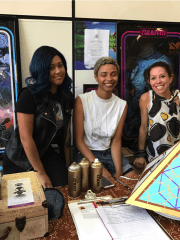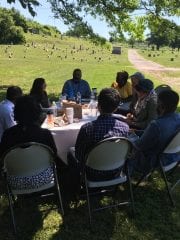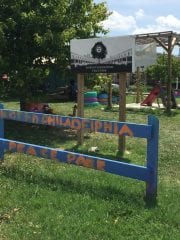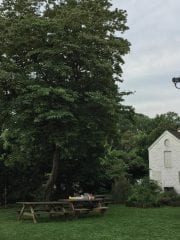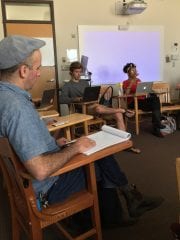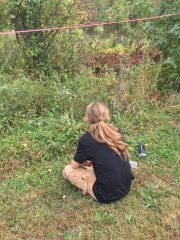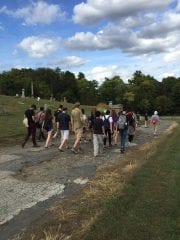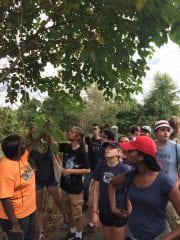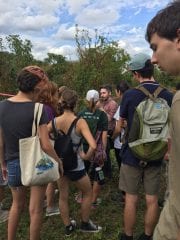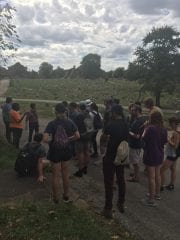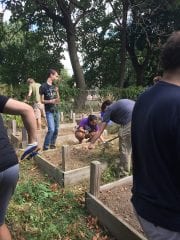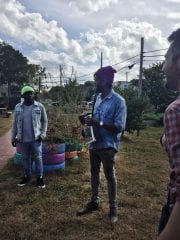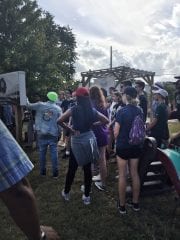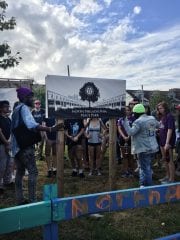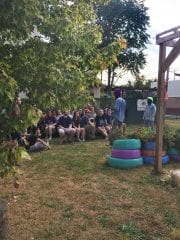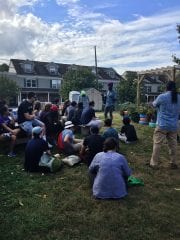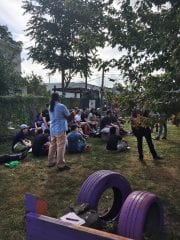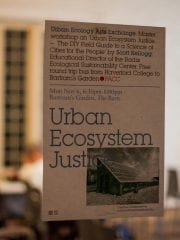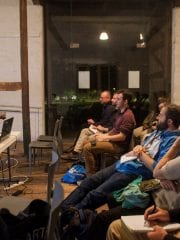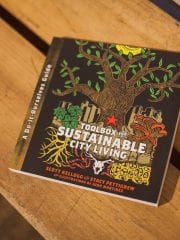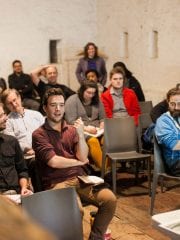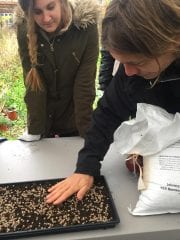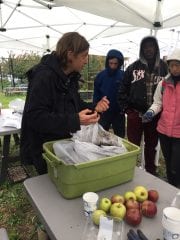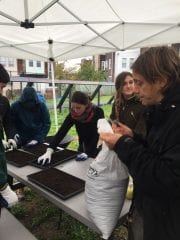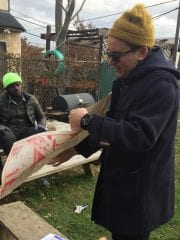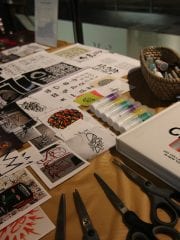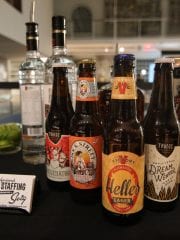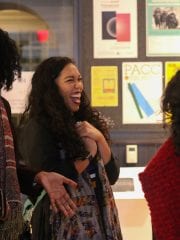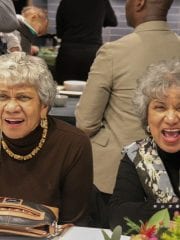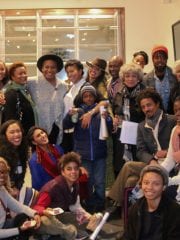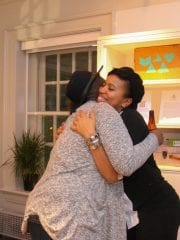Fall 2017
Introduction
What defines the urban environment? How do the ways we engage and navigate the 21st century world and its many dimensions–natural and industrial, digital and virtual–ultimately shape the nature of human experience and our impact on the planet? The Urban Ecology Arts Exchange is a community-driven collaborative engaging artists, urban green spaces, and Haverford College students and professors in diverse ecologies at the intersection of art and science, teaching and learning, spirit and nature. Through creative exploration and critical investigation, the Urban Ecology Arts Exchange addresses these and other questions about our ever-changing relationship to human and non-human environments.
This project was active during Fall 2017. The planning for this project began a semester in advance, and follow-up extended past the active period.
Collaborators
Events
Pennsylvania Horticultural Society
Meeting
5.5
10am-12pm, Pennsylvania Horticultural Society, 100 N 20th St, Philadelphia, PA
Members of the Urban Ecology Arts Exchange met to discuss the following questions:
As faculty members imbedded in this collaborative, how do you imagine students will participate across the various components of the project as imagined by faculty, non-profit, and artist(s)? What varied kinds of expertise will be shared between the different collaborators?
Describe the role of the artist(s) and how they will contribute in the stages of planning, programming, and assessment. As the artist, what sorts of activities or engagement do you imagine your work will catalyze? How will this project inform, activate, and generate content for your own creative practice?
As the non-profit partner, talk about your strategic goals in the near and long-term, and how the project supports those goals. What are the specific outcomes for the non-profit in this project?
With the above in mind, outline five salient events or activities you are planning in relation to the overall goals for the project, including any affected audiences, ideas for venue and programmatic activities.
How might the work of the Collaborative be sustained beyond this project? Here you might expand on the goals and outcomes included in the original proposal and consider both the measurable and intangible results that will be present at the conclusion of the collaborative and beyond.
Read lessEast Park Revitalization Alliance: Suku John, Executive Director
Non-Profit Partner
1737 N 31st St, Philadelphia, PA
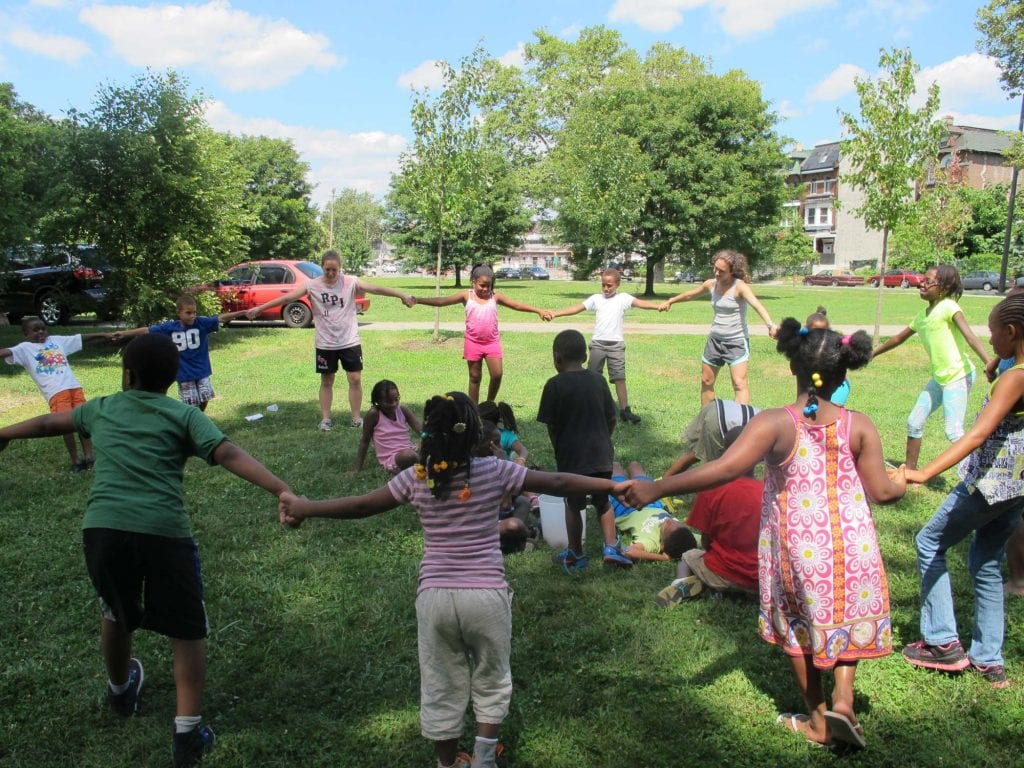
East Park Revitalization Alliance (EPRA) seeks to build a healthy community in the Strawberry Mansion neighborhood, focusing on environmental improvement and health promotion. We turn vacant land into community gardens, operate programming to connect neighborhood residents to the adjacent park, have planted over 700 trees in the community and run the successful “Healthy Choices” Youth Program, an after school and summer program for neighborhood youth ages 6-18 at our local recreation center that is based on giving youth the skills to make the healthy choices that will help them become healthy adults.
EPRA also focuses on food and land access by supporting and training community gardeners, running two weekly food pantries, operating a weekly farmstand, and distributing fresh, neighborhood-grown produce to expand access.
Photo Credit: East Park Revitalization Alliance
North Philly Peace Park: Tommy Joshua, Executive Director, and Pili X, Director of Community Partnerships
Non-Profit Partner
2200 W Jefferson Street, Philadelphia, PA
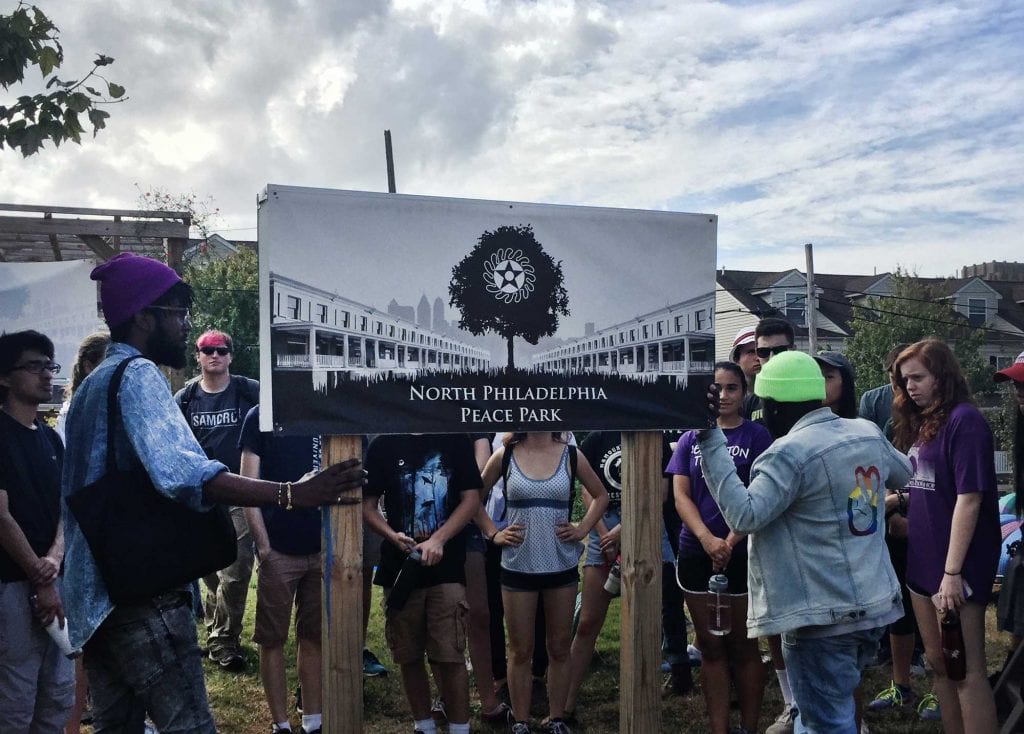
The North Philly Peace Park was founded in 2012 on several vacant parcels of land directly across the street from the Blumberg Housing Projects. The founding members were a socially engaged group of Blumberg and neighborhood residents, activists, designers, organizers, and educators, who formed an ecological campus that sought to collectively solve many of the neighborhood’s critical issues. The group utilized their collective resources, knowledge, and skills and designed a campus that included a fence-free organic farm, an Earthship-style pavilion, and created after school and community programs like the Urban County Fair. In 2015, the North Philly Peace Park was displaced by PHA development plans and fought these actions aggressively from 2015-2017, resulting in a move to its current location along Jefferson street and gaining land security. From 2016- 2018 the Park has been engaged in the redevelopment process with partners from the University of Pennsylvania School of Design, student group Diverse Design, Habitat for Humanity, Haverford College, and Youth Build. In 2018 the park will finalize this process with completing an off-grid facility to further complement its programs and prove a proof of concept/ model for equitable design practice.
The park has grown into a popular charitable eco campus and passive park that provides free programs to the greater Philadelphia community. It is a grassroots organization with a dedicated volunteer staff and a membership base strongly rooted in surrounding neighborhoods. The programs are supported by strategic partnerships that strengthen the four main program areas.
Photo Credit: Stephanie Bursese
Friends of Mount Moriah Cemetery: Paulette Rhone, President
Non-Profit Partner
Mount Moriah Cemetery, 6201 Kingsessing Ave, Philadelphia, PA
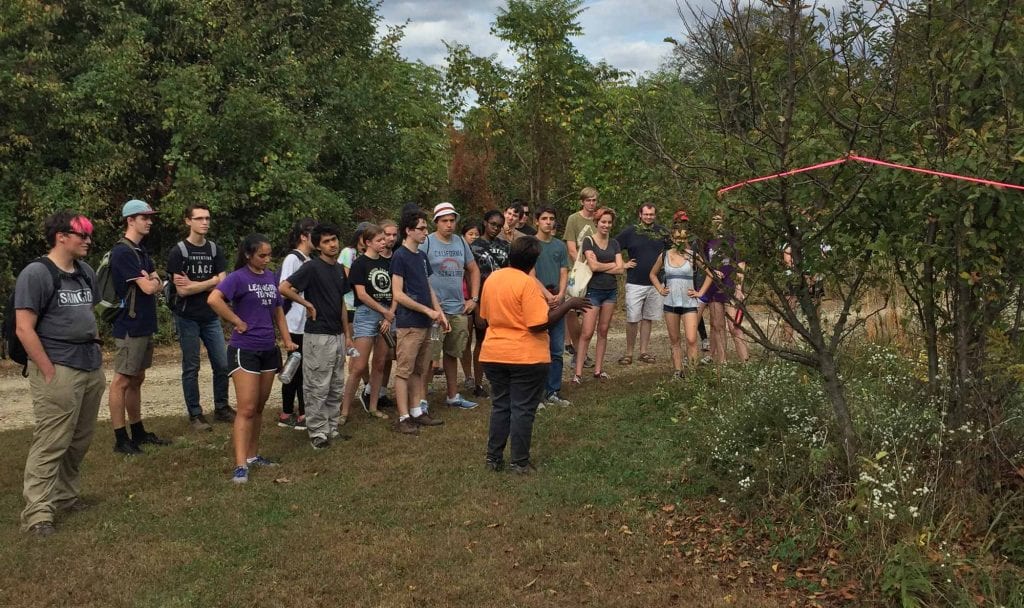
The Friends of Mount Moriah Cemetery is a 501(c)3 nonprofit organization dedicated to the preservation and promotion of the Mount Moriah Cemetery by honoring the memory of those interred in her folds through restoration, historic research, education and community engagement.
The board was formed in 2011. Members chair various committees on the environment, records, communications, etc.
Photo Credit: Stephanie Bursese
Li Sumpter, Lead Artist
Artist in Residence
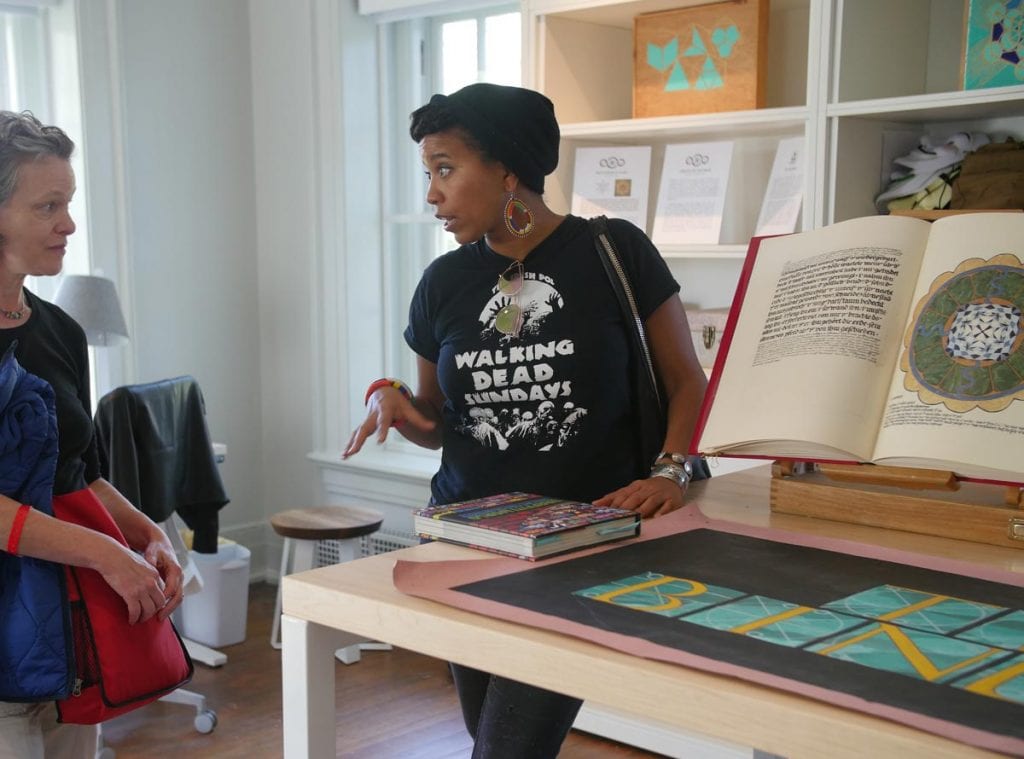
Li Sumpter is an artist, educator, community organizer and scholar who lives in Philadelphia. She will be an artist in residence at Haverford College during the Fall 2017 Semester and will be on campus from throughout the semester leading class visits and workshops.
Photo Credit: Stephanie Bursese
Mount Moriah Cemetary, Lead Non-Profit Partner
Meeting
6.9
10am -12pm, Mount Moriah Cemetery, 6201 Kingsessing Ave, Philadelphia, PA
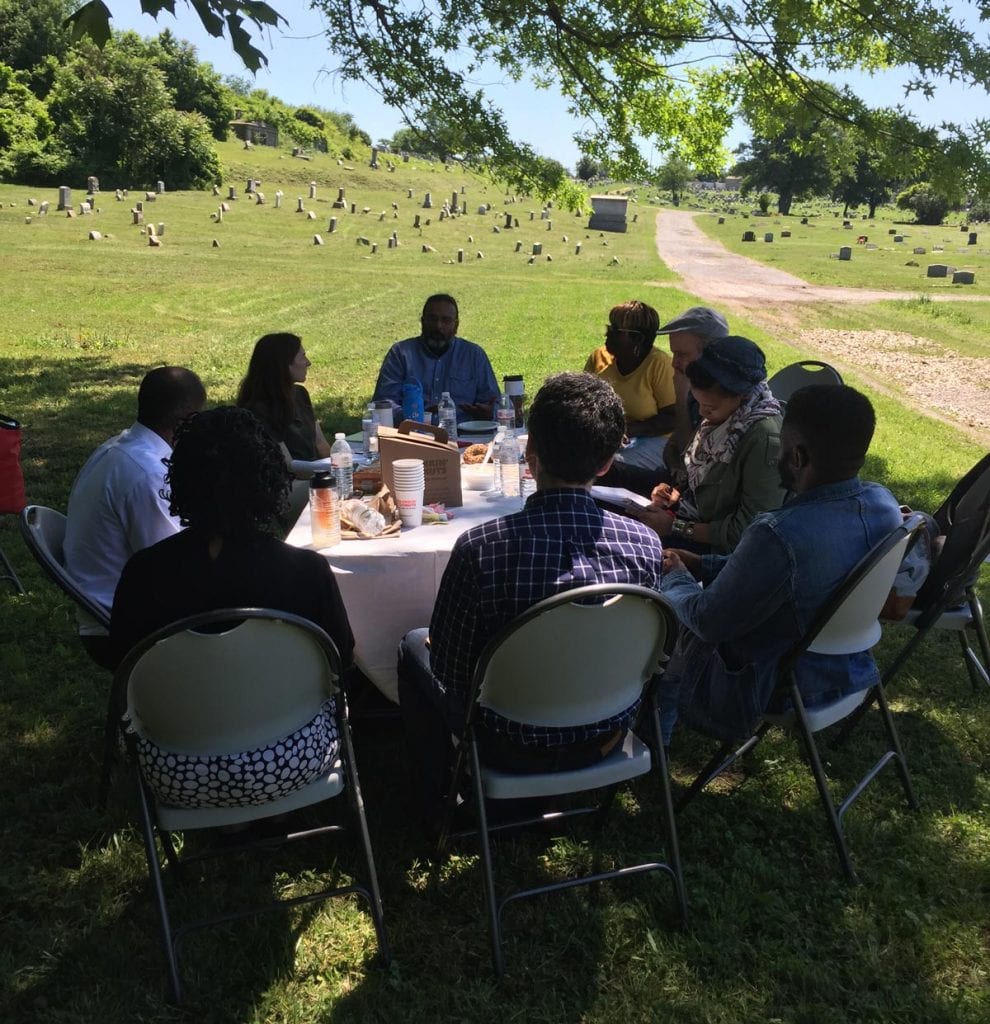
Members of the Urban Ecology Arts Exchange collaborative team met at Mount Moriah Cemetery to discuss the specific needs of Mount Moriah. We met several staff members and walked the grounds of the cemetery.
Photo Credit: Stephanie Bursese
North Philly Peace Park, Lead Non-Profit Partner
Meeting
7.21
10am-12pm, North Philly Peace Park, 2216 W Jefferson St, Philadelphia, PA
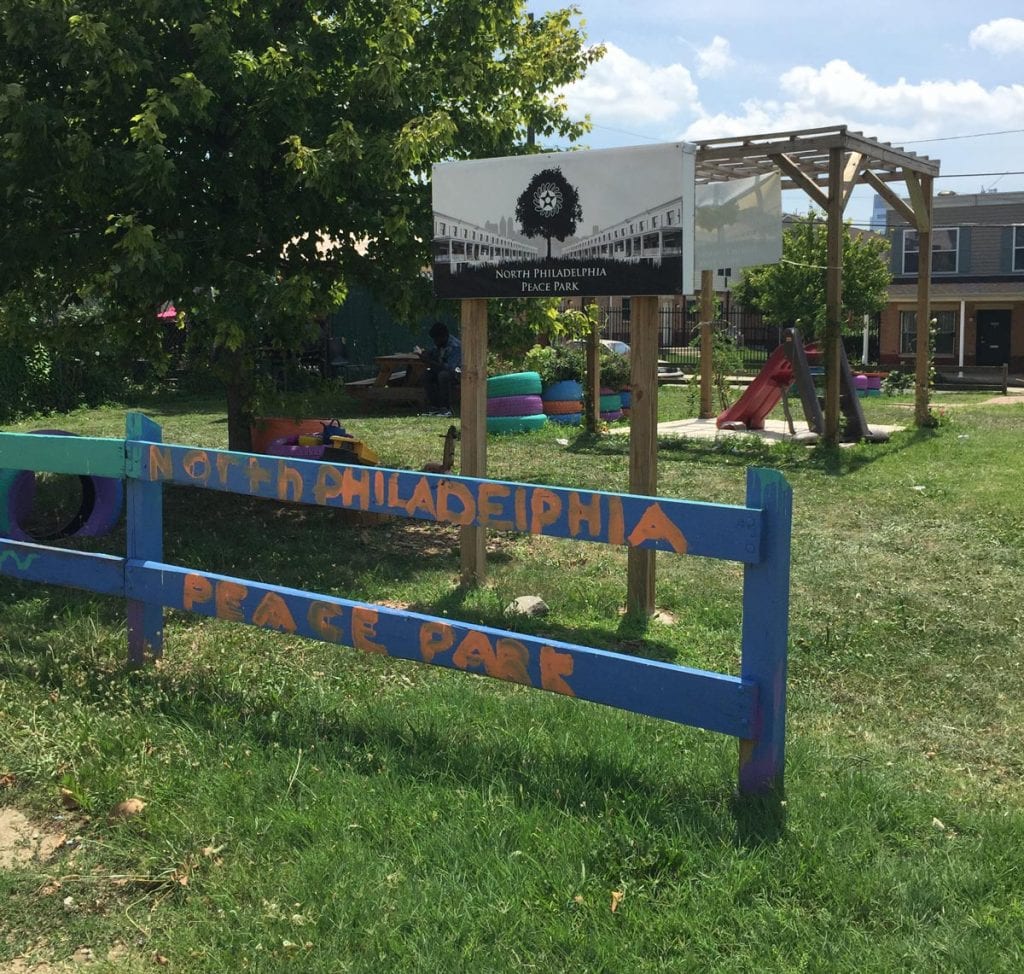
Members of the Urban Ecology Arts Exchange collaborative team met at North Philly Peace Park to discuss the specific needs of the Peace Park. The entire collaborative team did a detailed site walkthrough of the main park and the satellite spots around the Sharswood neighborhood that Tommy Caison and Pili X are developing. Tommy and Pili explained the history of the land and the challenges they were facing with the City of Philadelphia concerning zoning, permits, and ownership of the park.
Photo Credit: Stephanie Bursese
East Park Revitalization Alliance, Lead Non-Profit Partner
Meeting
8.14
10am-12pm, East Park Revitalization Alliance, 1737 N 31st St, Philadelphia, PA
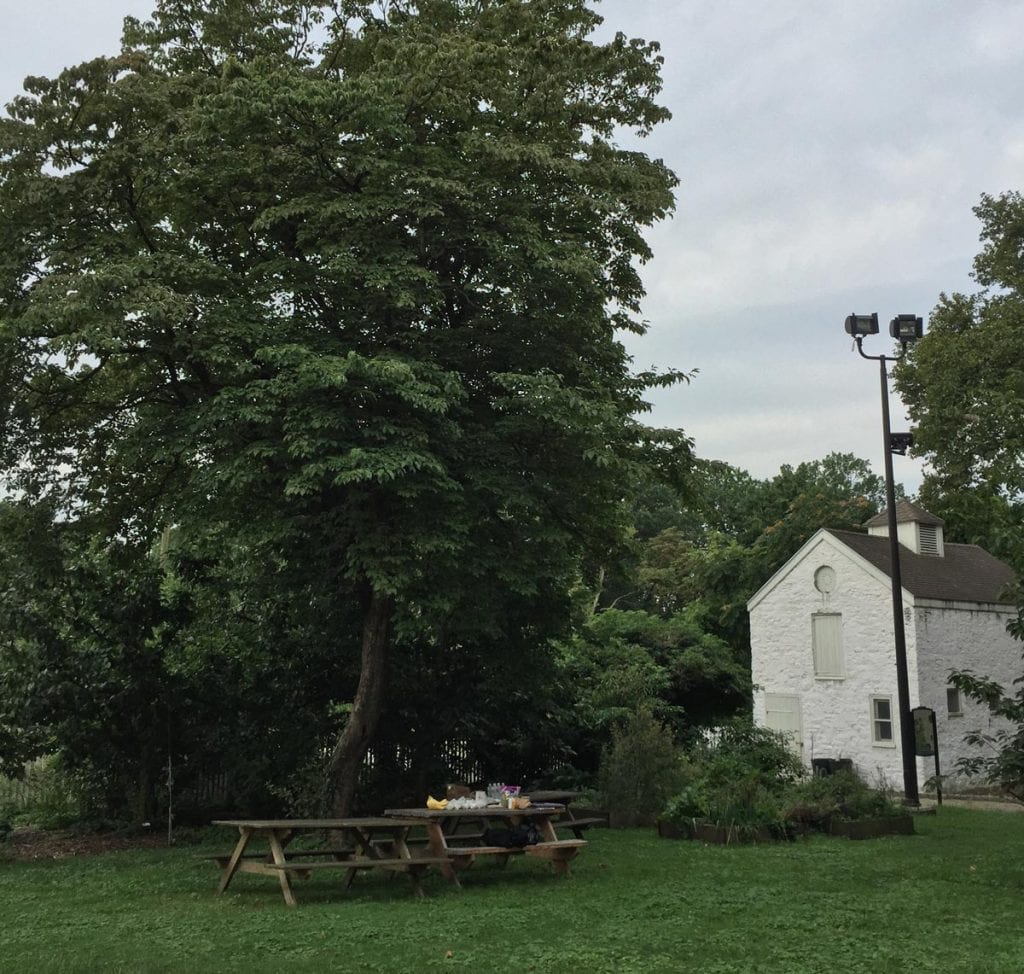
Members of the Urban Ecology collaborative team met at East Park to discuss the specific needs of the East Park Revitalization Alliance. We visited several of the EPRA sites and talked about how programs like PACC could strengthen the EPRA after school program.
Photo Credit: Stephanie Bursese
North Philly Peace Park, Lead Non-Profit Partner
Meeting
9.14
2216 W Jefferson St, Philadelphia, PA
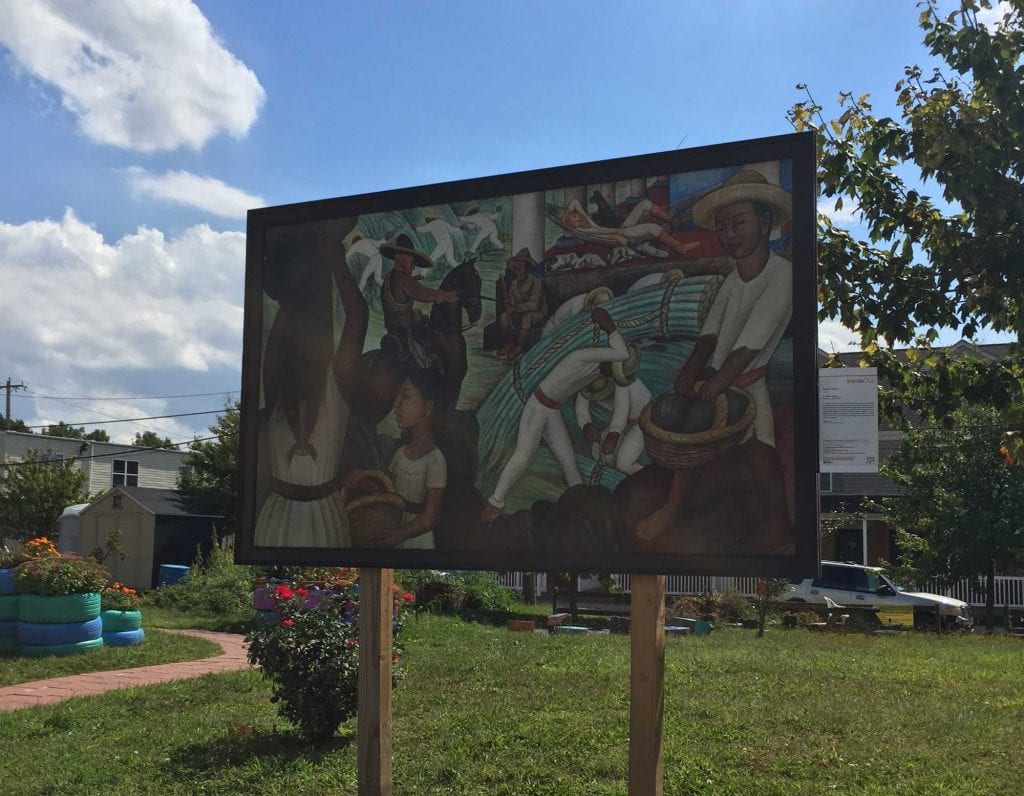
This was a collaborative meeting between the North Philly Peace Park leaders, PACC, and nearby community members to gather, share food, and discuss how the two organizations and the neighborhood could best come together to address direct needs of the Peace Park.
They discussed topics like urban gardening, the importance of teaching children about where their food comes from, and best practices in combating food deserts and challenges around food accessibility.
Photo Credit: Stephanie Bursese
Case Studies in Environmental Issues: Concepts, Contexts, & Conundrums Course Visit w/ Li Sumpter Class, Lead Artist
Course Visit
9.19
11:30am-1pm, Hilles Building, Haverford College
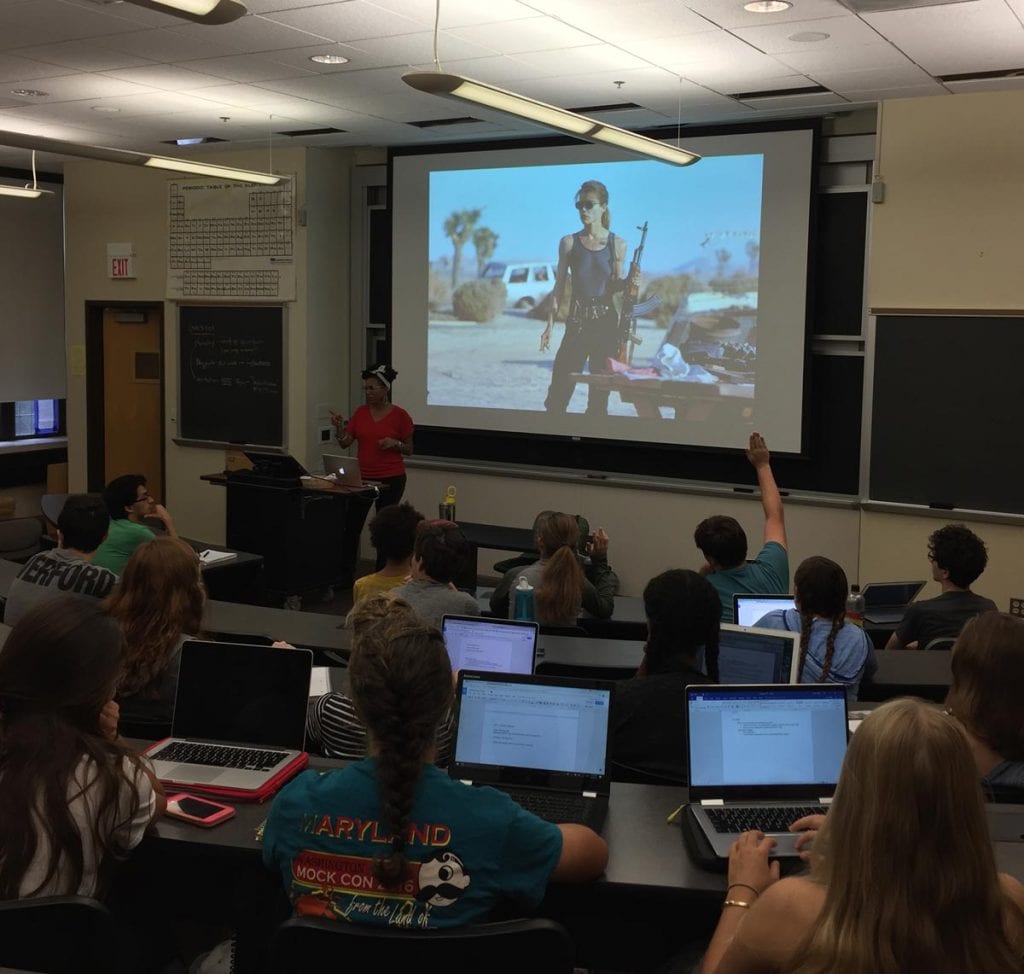
Educator, activist, artist and scholar Li Sumpter visited Jonathan Wilson’s course, “Case Studies in Environmental Issues: Concepts, Contexts, & Conundrums”.
Li presented her work on afro-futurism and community resilience in the face of environmental apocalypse. She engaged the students in a discussion about her creative process, sources of inspiration, concepts present in her latest projects, and how these ideas connect with the larger collaborative PACC project.
Photo Credit: Stephanie Bursese
Non-Profit Partner Site Tours w/ Case Studies in Environmental Issues Students
Site Visit
10.7
9am-5pm, Mount Moriah, East Park Revitilization Alliance, North Philly Peace Park
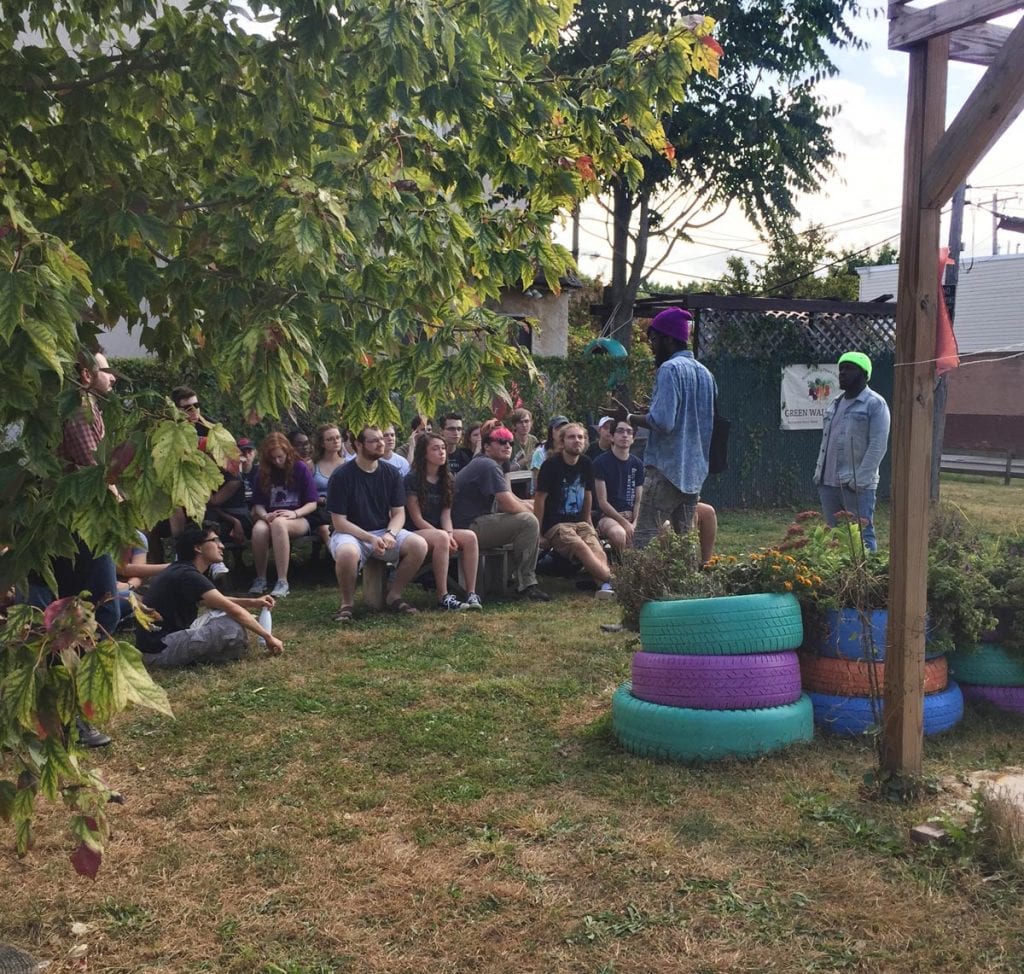
On Saturday, October 7th, 34 students from Jonathan Wilson and Helen White’s course “Case Studies in Environmental Issues; Concepts, Contexts, and Conundrums” did a site visit with Paulette Rhone, President of the Friends of Mount Moriah Cemetery; Suku John, Executive Director, East Park Revitalization Alliance (EPRA); Tommy Joshua, Executive Director, North Philly Peace Park and Pili X, Director of Community Partnerships, North Philly Peace Park. The students and collaborative team, led by the Directors of the Non-Profit organizations, did a detailed site visit of each location and received an in-depth explanation of how each organization operates.
Photo Credit: Stephanie Bursese
Urban Ecosystem Justice w/ Scott Kellogg
Presentation & Discussion
11.6
6:30–8pm, Bartram's Garden, 5400 Lindbergh Blvd, Philadelphia, PA
With a growing awareness of the interconnectedness of social and ecological systems, there is an increased recognition of the idea of cities as ecosystems. Until recently, the field of urban ecology was centered on the study of ecology in cities as opposed to the ecology of cities. This new paradigm sees urban environments as complex adaptive systems, hybrids of human and non-human co-evolutionary processes. Much of the field of urban ecosystem studies is still dominated, however, from a top-down planning and government perspective that has little relevance to the lived experience of the average urban resident.
What would it mean to merge the concept of urban ecology with a social justice analysis? How do questions of access, equity, and fairness apply to the biophysical dimensions of urban ecosystems such as soils, watersheds, biodiversity, waste cycles, and atmospheres? Is it possible to construct an ethic of ‘urban biocultural diversity’ where mutually symbiotic relationships are created between the human and non-human elements of a city, capable of meeting the material needs of residents while simultaneously regenerating the socio-ecological health of the urban ecosystem?
Drawing upon both theoretical possibilities and real-world examples, this workshop will frame these questions and propose solutions.
Topics to be explored include:
• DIY river remediation: floating restorers
• Resilient airsheds: reclaiming urban atmospheres
• Community-based bioremediation of contaminated soils
• Ecologically Regenerative Micro-Industries: turning wastes into soil
• Urban biocultural diversity: biodiversity and social justice linked
Lessons and experiences will be drawn from the past five years of running the Radix Ecological Sustainability Center in Albany, NY, an urban environmental education center that integrates an urban ecosystem justice youth curriculum into a demonstration site of sustainable tools and technologies.
Scott Kellogg is the co-author of the book Toolbox for Sustainable City Living: A Do-it-Ourselves Guide (South End Press) and the primary teacher of R.U.S.T. – The Regenerative Urban Sustainability Training, an intensive weekend workshop in urban ecological living skills that has been attended by over 700 people since it was first taught in 2006.
Currently, Scott is the Educational Director at the Radix Ecological Sustainability Center, an urban environmental educational center in Albany, NY. It is a demonstration of environmental technologies and sustainable micro industries applicable in today’s cities. Radix contains a solar heated bioshelter greenhouse that contains an integrated food production system involving fish, plants, rabbits, worms, chickens, ducks, silkworms, and black soldier flies.
Read lessOyster Mushroom Production with Urban Waste Products, Microgreens & Intensive Indoor Vegetable Production w/ Scott Kellogg
Workshop
11.7
1:30–3:30pm, East Park Revitalization Alliance, 1737 N 31st St, Philadelphia, PA
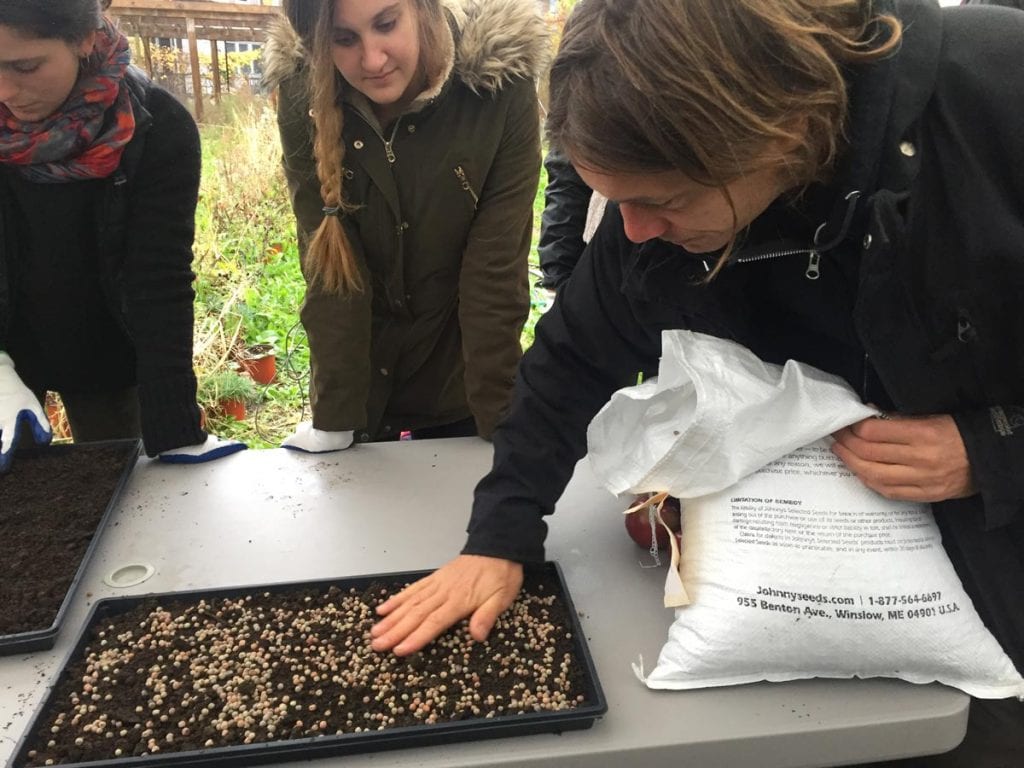
Students from Joshua Moses’s capstone course “Senior Seminar in Environmental Studies” were joined by students from Bryn Mawr, Temple University and community members from Strawberry Mansion to participate in a workshop led by activist and scholar, Scott Kellogg. During the workshop, participants learned about how mushroom spawn and dwarf grey shoot seeds can grow in urban waste products such as coffee grounds and cardboard. Each participant left with a tray of microgreens and a bag of mushrooms to grow at home.
Photo Credit: Stephanie Bursese
Black Urban Growers (BUGS) w/ Li Sumpter & Tommy Joshua
Conference Presentation
11.11
Black Urban Grower's Conference, Georgia State University, Atlanta, GA
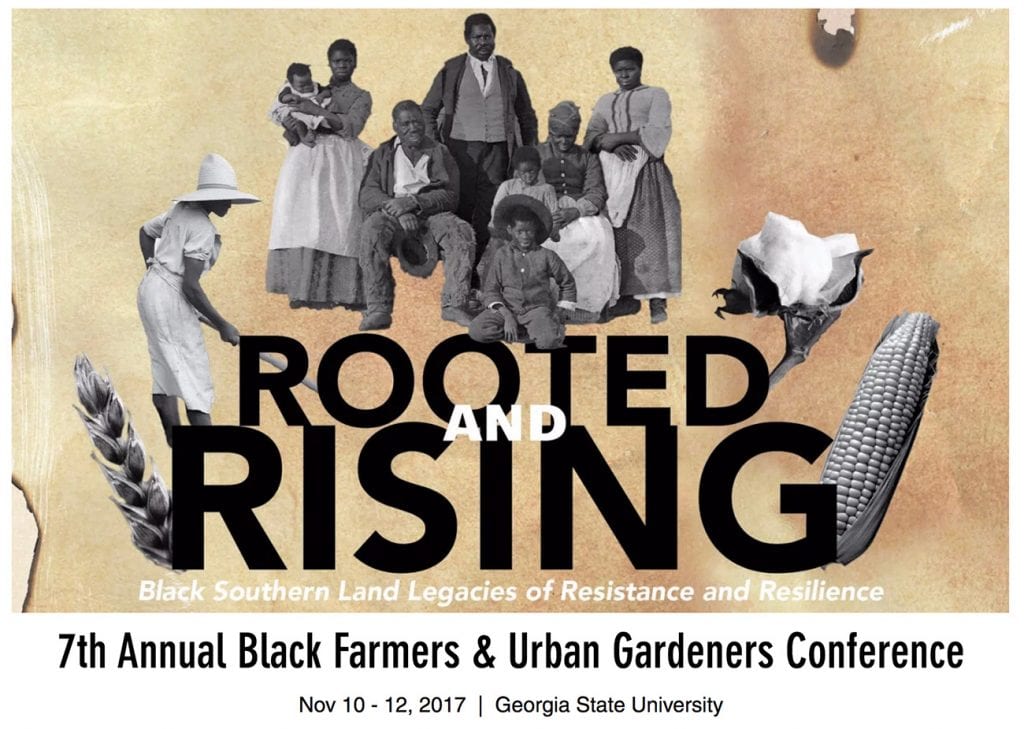
PACC is sending Li Sumpter, Tommy Joshua and Josh Moses to the 2017 Black Urban Growers conference in Atlanta, GA “Rooted and Rising: Black Southern Land Legacies of Resistance and Resilience” from November 10th – November 12th, 2017. Li and Tommy will be presenting on “Black Farmers Are the Afrofuture: Part 2 | Eco-Design and Creative Resistance” including a presentation about the collaborative work being done in their PACC project, Urban Ecology Arts Exchange.
Details about the presentation: This interactive, solution-based workshop considers the role of black and brown farmers facing ecological and social crises that threaten food security, the survival of urban communities and ultimately, life on Planet Earth through examining potential threats to urban farmers and the communities they serve from natural disasters and public health pandemics to economic collapse and various forms of warfare with offering basic tools and strategies for survival.
Photo Credit: Black Urban Growers
Mapping Emergent Biodiversity w/ Dylan Gauthier
Workshop
11.14
2-3:30pm, North Philly Peace Park, 2216 W Jefferson St, Philadelphia, PA
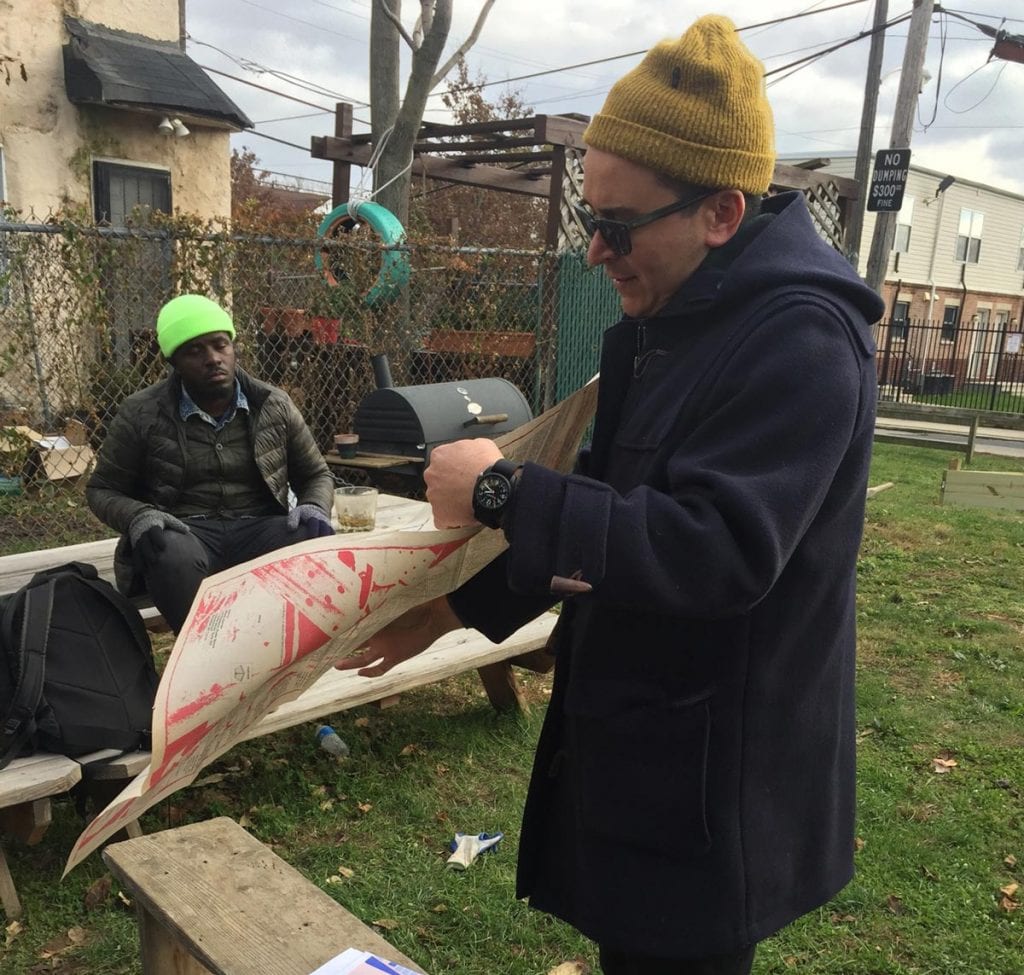
Artist, curator, and educator Dylan Gauthier will lead a workshop with Pili X, Director of Community Partnerships at North Philly Peace Park, which will map connections between the main Peace Park site and satellite gardens in the neighborhood, develop a taxonomy and catalog of the immanent and emergent biodiversity of neighborhood lots and reclaimed land, and discuss ways to reinforce resilience and preparedness in the area.
Photo Credit: Stephanie Bursese
Supper Club Scinema
Program
11.30
6:30–9:30pm, VCAM, Haverford College
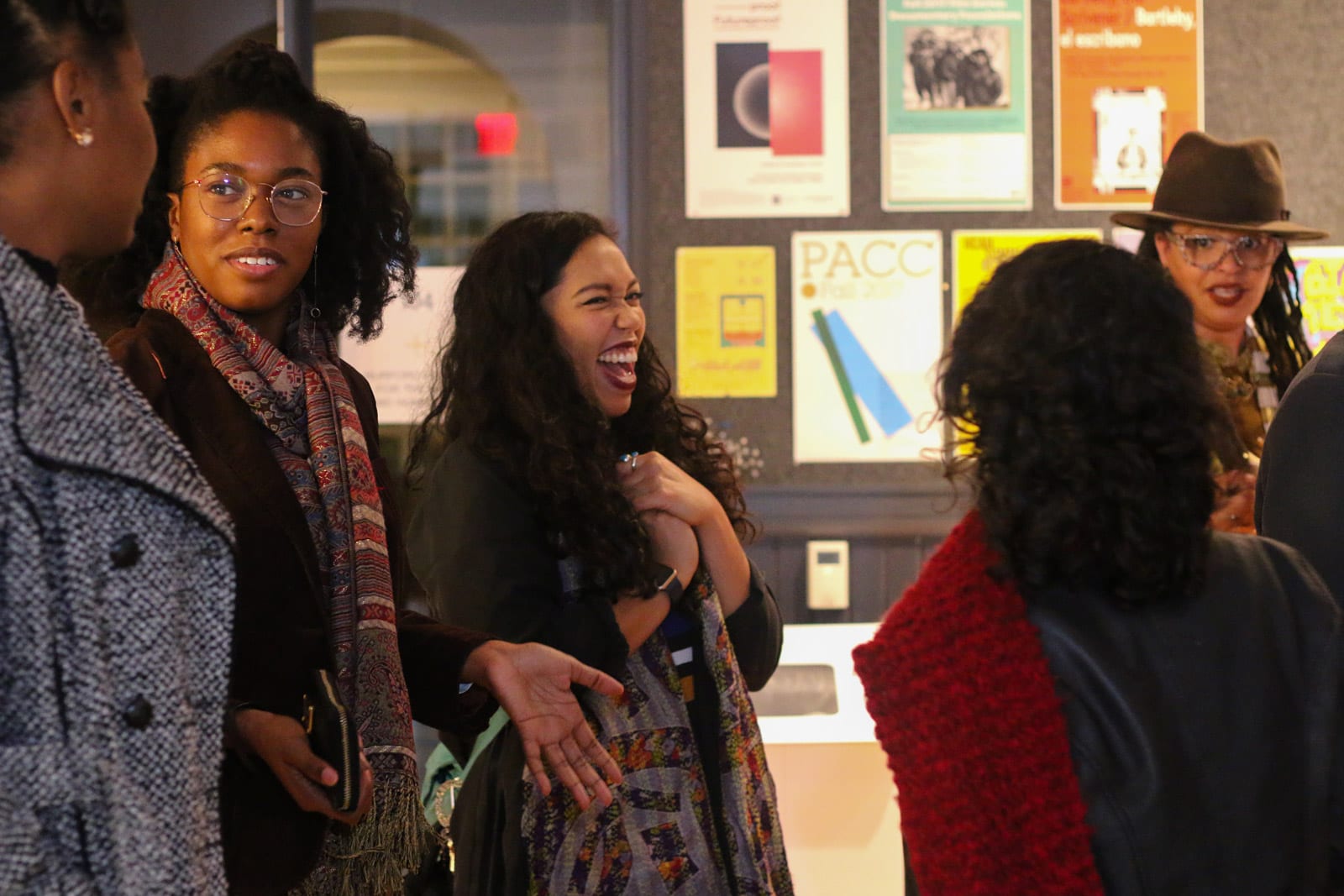
A curated blend of the cinematic and culinary arts for film and food lovers with a taste for the experimental. Plant-based plates are locally sourced and creatively prepared while select short films explore the speculative future through the lens of ecology and science fiction.
“The End of Eating Everything” directed by Wangechi Mutu; “Bladerunner 2022” directed by Shinichiro Watanabe, and “Pumzi” directed by Wanuri Kahiu were screened at the event. Produced by Li Sumpter with food by Gangster Vegan (Camille and Vinny Kent), music by DJ John Morrison, and documentation by Dominique Nichole.
Read lessEarth Day at North Philly Peace Park
Public Program
4.21.18
1-5pm, North Philly Peace Park, 2216 W Jefferson St, Philadelphia, PA
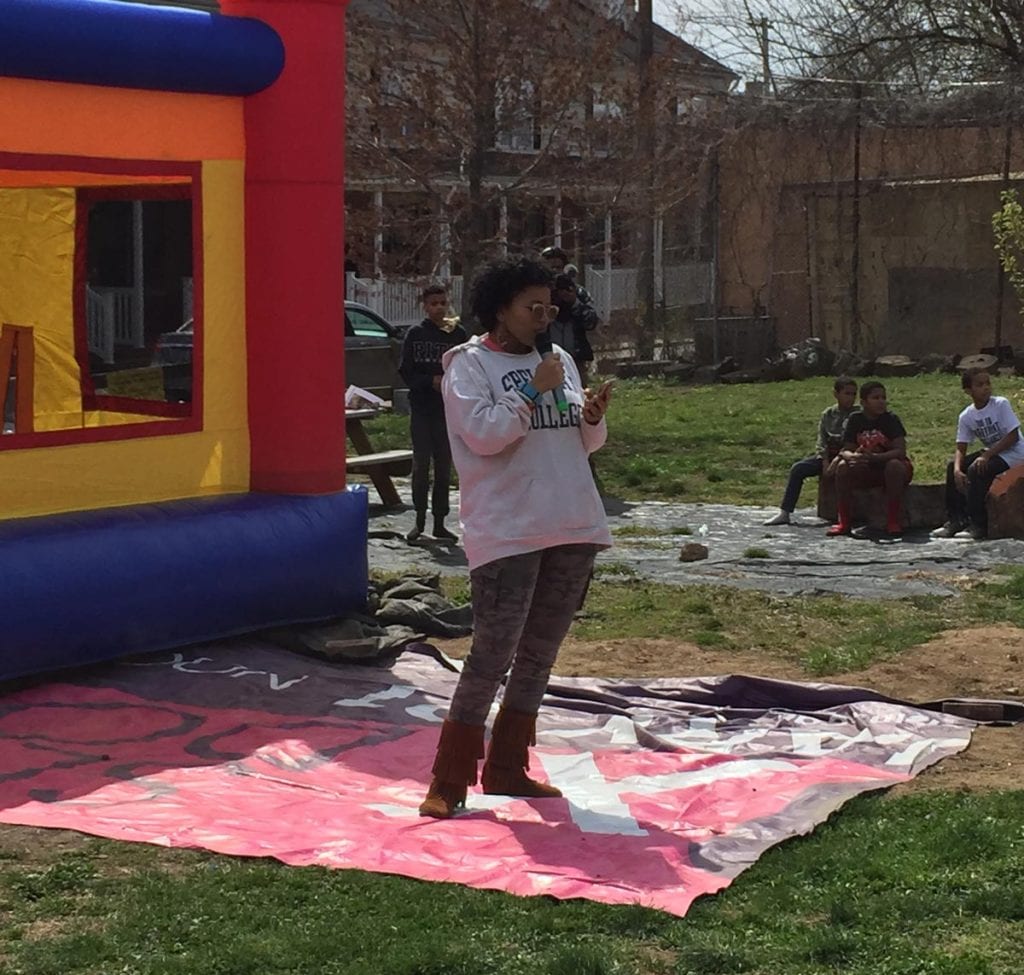
Joshua Moses, Stephanie Bursese and artist Li Sumpter attended the Earth Day event at North Philly Peace Park, called ‘Peace on Earthday’. The day consisted of arts and crafts, interactive demonstrations, innovation stations, seed giveaway, speakers, and the launch of Peace Town Taxi.
Photo Credit: Stephanie Bursese
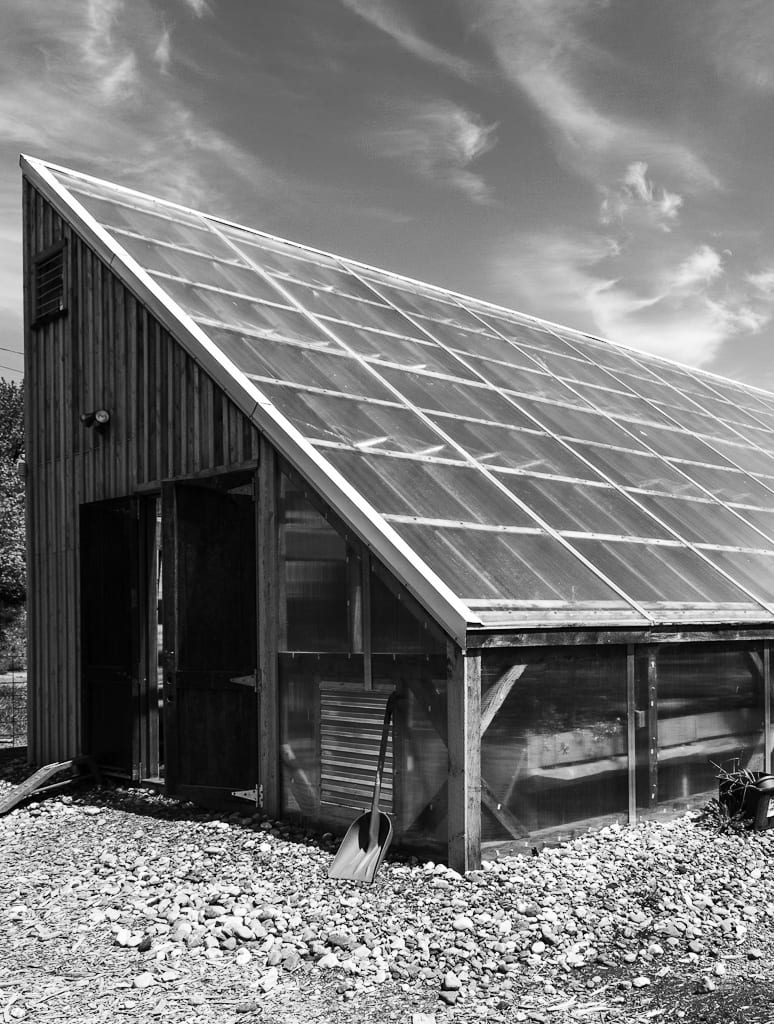
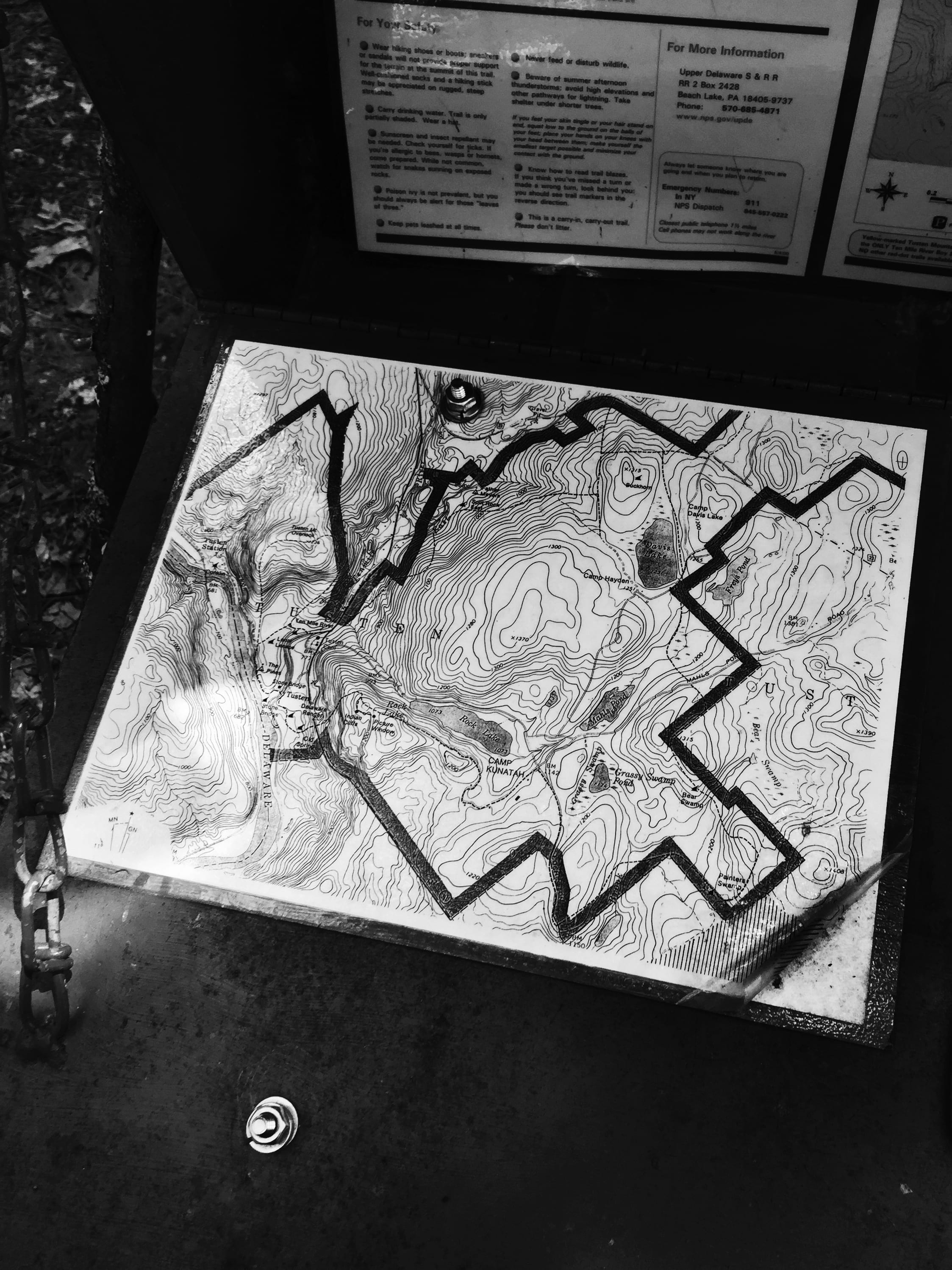
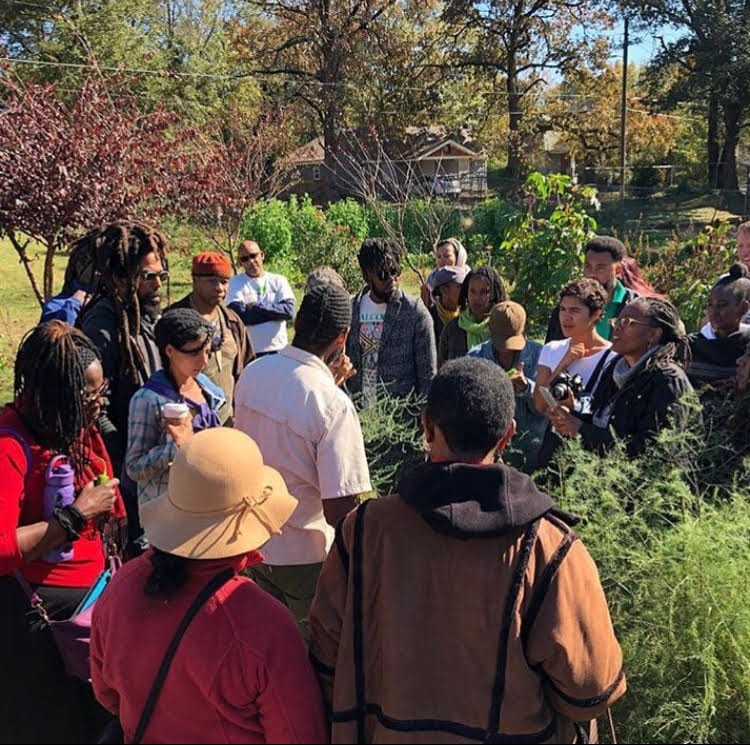
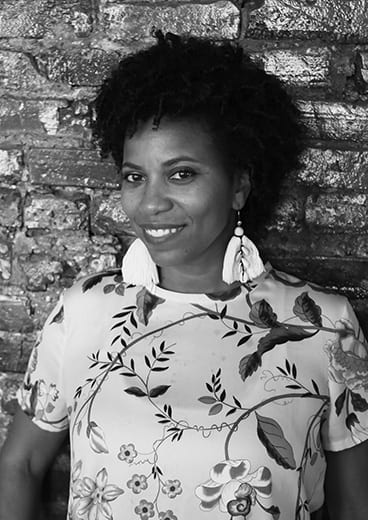 Lead Artist
Lead Artist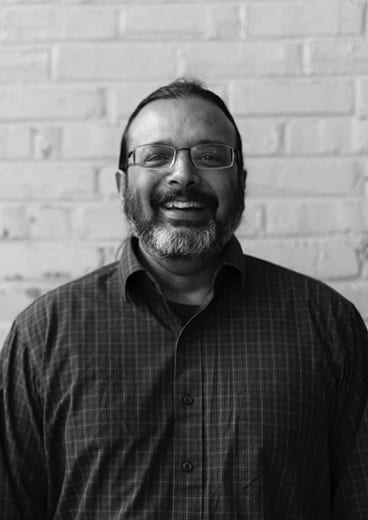 Executive Director
Executive Director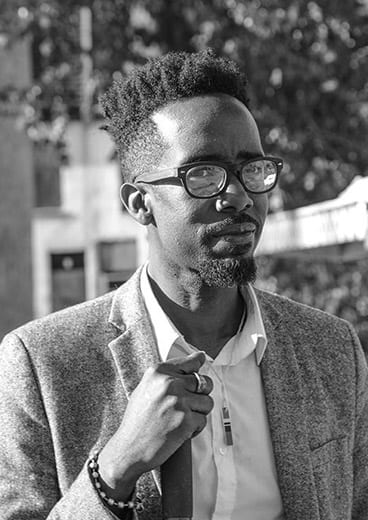 Executive Director
Executive Director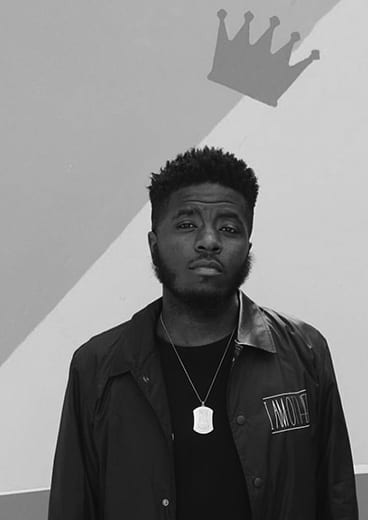 Director of Community Partnerships
Director of Community Partnerships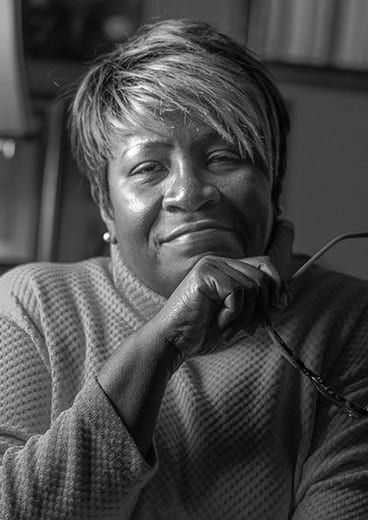 President
President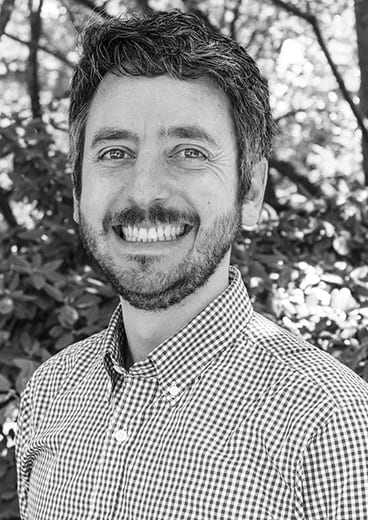 Assistant Professor of Biology
Assistant Professor of Biology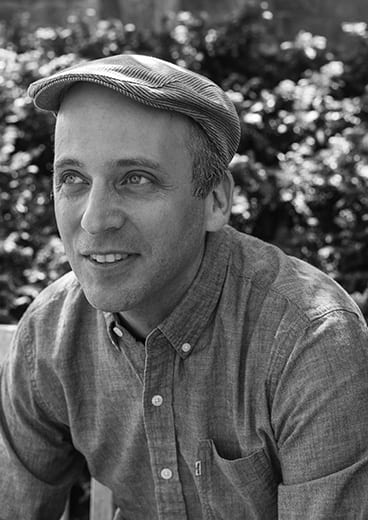 Assistant Professor of Anthropology and Environmental Studies
Assistant Professor of Anthropology and Environmental Studies